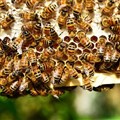10 ways to make real changes this World Ocean Day
The need to take care of our oceans has never been more urgent. Whether you live close to the sea or not, you and every other living thing depends on the ocean for survival.

It covers 71% of the earth’s surface, serving as a major component of our ecosystem and is responsible for every two breaths we take. The ocean produces more oxygen than the entire world’s rainforests and it absorbs almost half of the carbon dioxide. 86% of drinking water comes from the oceans.
When we hear that the vast, vast ocean is in trouble from effects of climate change, overfishing and pollution, it is easy to feel helpless. While many issues require leadership from governments and businesses, there are many small actions that we can all take that will make a difference. We can no longer pass on the responsibility and wait for change.

In celebration of World Ocean Day, this 8 June 2019, here is a list of positive and proactive steps that you can implement today to save our seas.
Go plant-based
A surprising fact is that pigs, chickens and cows are the world’s leading oceanic predators. Yes, farmed land animals are the leading causes of sea pollution, species extinction, habitat destruction and ocean dead zones. Due to waste runoff, livestock operations on land have caused more than 500 nitrogen flooded dead zones. Animal agriculture is also responsible for more greenhouse gasses than the entire transport industry combined, meaning that our appetite for meat is affecting the temperature and cleanliness of our waters.
Reduce your energy consumption
The ocean has absorbed 90% of excess heat created by burning fossil fuels in the last half-century. It’s been working overtime for us. Over the years we have experienced warmer waters, which have affected where fish swim and their reproduction cycle, sea levels and natural disasters on land. You can reduce the effects of climate change by being conscious of your energy use at home and work, using public transport (or walking or riding your bike to work), switching to fluorescent light bulbs, turning off lights and unplugging electronics as well as demanding renewable energy options in your community.
Use less fertilisers
Pesticides and chemical fertilisers used in the agriculture production of feed crops poison waterways. While this may seem like an industry-related problem, we can all be cognisant of the type and how much fertiliser used in our home gardens. These chemicals end up in the ocean causing dead zones (an area with low levels of oxygen in the water). Since marine life need oxygen to live, they end up fleeing the area or dying as a result.
Use fewer plastic products
The more plastic we use, the more plastic ends up in the ocean. It is estimated by 2050 there will be more plastic in the sea than fish. The main source of plastic pollution in the sea is not plastic straws but actually fishing lines. See Step #1. Plant-based fish alternatives remove the need for fishing lines. As much as possible, reduce and reuse, and then recycle!
Take care of the beach
Whether you are relaxing on the beach, surfing or diving, always clean up after yourself. Respect the ocean by not interfering with wildlife or removing rocks and coral. Participate in or organise local beach clean ups. Pick up what you find no matter how big or small; neglected, light-weight debris will be blown into the sea.
Travel the ocean with TLC
If you enjoy boating, kayaking or other fun water activities, always act responsibly. Do not throw rubbish or food overboard and be aware of the marine life around you. Going on a cruise? Research the most eco-friendly option.
Shop sustainably
Don’t purchase items that exploit marine life and choose ocean-friendly products. There are many products on the market that harm fragile coral reefs and marine populations. Avoid purchasing coral jewellery, tortoiseshell hair accessories, cosmetics containing shark squalene and other shark product, as well as fish tank accoutrements which are often sourced from fragile coastal ecosystems. Don’t buy fish as pets either and take a strong stance against keeping exotic species in captivity.
Support organisations that protect the ocean
There are many local and global organisations that are fighting to protect ocean habitats and marine wildlife. Consider giving financial support or volunteering for hands-on advocacy.
Be the change in your community
Indeed, one person can make a difference! Start beach clean ups, ask restaurants and supermarkets to offer more plant-based and fish-free options. Speak up if you notice threatened species’ on the menu or seafood counter. Take some time to research the ocean policies of government officials before casting your vote.
Educate yourself and others about oceans and marine life
Keep inspired and continue learning about the issues facing our delicate ocean - then share that knowledge far and wide. Tell people what’s going on with the world’s oceans and share these tips so that they can make a difference too.
All life on Earth is connected to the ocean. This World Ocean Day, let’s all honour and treat the ocean with the care and respect it needs and deserves.





























